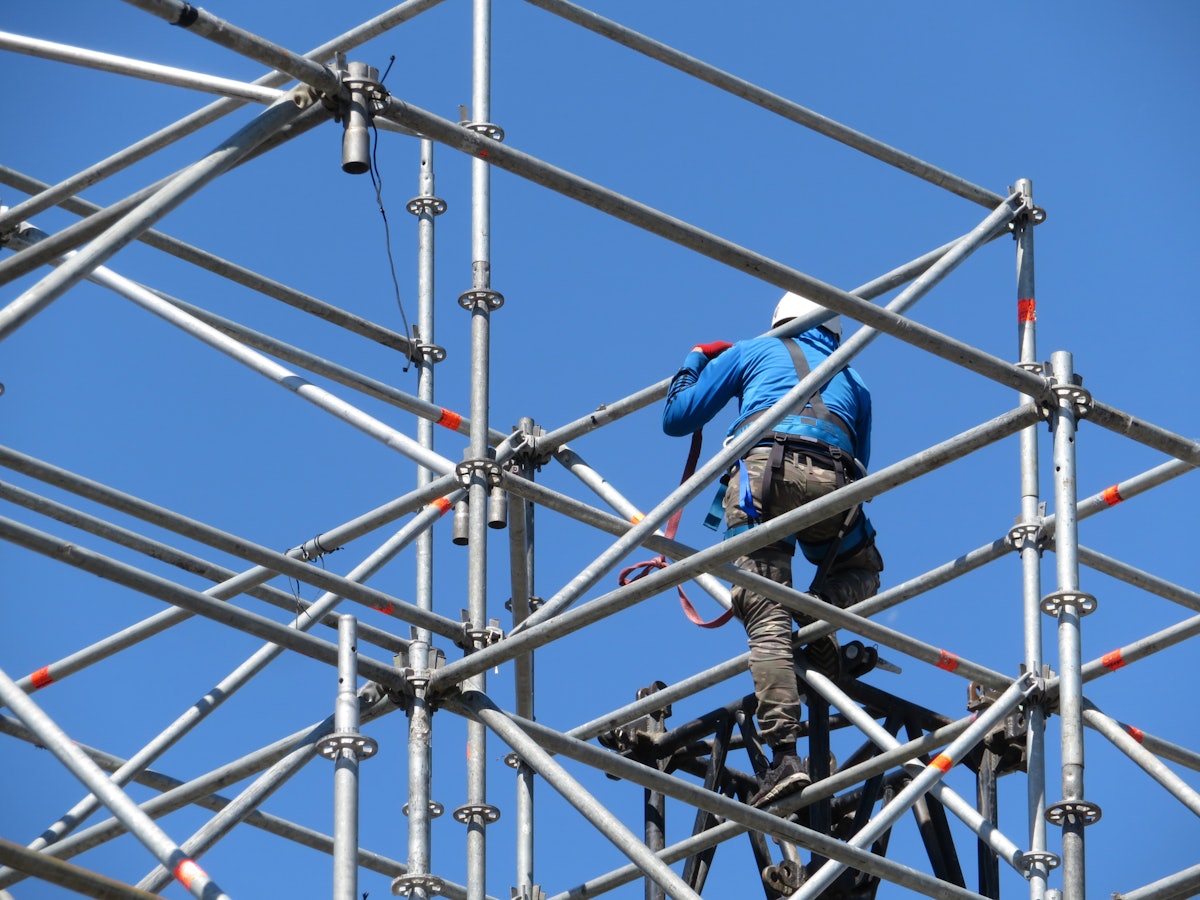Get the Best Scaffolding Cobham Services for Your Building Projects
Get the Best Scaffolding Cobham Services for Your Building Projects
Blog Article
Exploring the Different Sorts Of Scaffolding Made Use Of in Building And Construction Tasks
The building industry depends greatly on numerous kinds of scaffolding to satisfy details task demands, each offering distinctive advantages and applications. Conventional frame scaffolding supplies a strong foundation for basic jobs, while suspended scaffolding is important for work on skyscraper frameworks.

Conventional Frame Scaffolding
Typical framework scaffolding is among one of the most commonly utilized approaches in the building and construction market due to its robustness and versatility. This system contains straight and vertical frameworks that are set up to create a secure platform for workers and products. The major parts consist of upright blog posts, horizontal journals, and diagonal dental braces, which together give a solid structure that can support considerable loads.
One of the key advantages of standard frame scaffolding is its versatility to various building and construction tasks, ranging from household buildings to big industrial frameworks. The modular layout allows for easy assembly and disassembly, making it effective for both short-term and long-lasting tasks. In addition, the system can be customized in height and width, fitting various building layouts and website problems.
Security is critical in scaffolding applications, and standard framework systems are equipped with guardrails and toe boards to avoid falls and ensure worker security. In addition, normal examinations and adherence to security regulations are critical in keeping the honesty of the scaffold. Overall, conventional framework scaffolding remains a fundamental choice in the construction sector, offering a trustworthy system for labor and enhancing total project efficiency

Suspended Scaffolding
Suspended scaffolding uses a special remedy for construction jobs that call for accessibility to elevated surface areas, particularly in scenarios where conventional structure scaffolding may be not practical. This sort of scaffolding is generally put on hold from the roof or upper degrees of a structure, utilizing a system of pulley-blocks, ropes, and systems to develop a functioning space that can be gotten used to different heights.
One of the main benefits of put on hold scaffolding is its flexibility. It can be quickly rearranged or lowered to fit changes in building requirements, making it excellent for tasks such as home window installment, façade work, and upkeep on skyscrapers. Furthermore, the marginal impact of suspended scaffolding enables better use of ground area in city settings, where room is often restricted.
Security is an important consideration in the usage of put on hold scaffolding. Generally, suspended scaffolding provides a effective and reliable option for accessing hard-to-reach locations in numerous building scenarios, boosting both efficiency and security on site.
System Scaffolding
System scaffolding, usually considered a his comment is here modern solution in the scaffolding market, includes pre-engineered components that can be quickly constructed and adjusted for numerous construction tasks. Scaffolding. This kind of scaffolding is characterized by its modular style, which allows for convenience and effectiveness on work sites, fitting architectural requirements and various heights
Generally made from high-strength steel or aluminum, system scaffolding offers improved durability and security. The parts include vertical messages, straight journals, and angled braces, which adjoin safely, ensuring a robust framework. The layout often integrates standard fittings, simplifying setting up and disassembly procedures, thereby decreasing labor time and prices.

Rolling Scaffolding
Rolling scaffolding is a functional alternative to traditional set scaffolding, created for movement and simplicity of use on building websites. This sort of scaffolding consists of a system supported by structures with wheels, allowing employees to quickly relocate it as needed. The movement attribute dramatically improves performance, as it lessens downtime related to taking apart and assembling taken care of scaffolding.
Normally constructed from light-weight products such as aluminum or steel, rolling scaffolding offers a strong yet portable service for tasks calling for regular repositioning - Scaffolding. It is particularly beneficial in jobs such as painting, drywall installment, and electrical work, where accessibility to numerous elevations and places is essential
Safety is vital in rolling scaffolding style, with functions such as securing wheels to avoid unintentional motion when in operation, and guardrails to shield workers from drops. In addition, lots of versions are flexible in elevation, accommodating various task requirements.
Cantilever Scaffolding

The design of cantilever scaffolding generally entails utilizing brackets or arms secured to a building or structure, allowing the system to prolong outward securely. Safety is paramount; therefore, these click over here scaffolds need to be engineered to hold up against environmental conditions and different tons. Routine examination and upkeep are necessary to make sure structural honesty and worker safety.
Cantilever scaffolding is favored for its flexibility and efficient use space, making it a prominent selection in city environments where area restraints are usual. It helps with much easier accessibility to high elevations, eventually adding to the overall performance of building jobs. Just like all scaffolding kinds, appropriate training and adherence to safety and security requirements are crucial for employees utilizing cantilever scaffolding.
Final Thought
Standard framework scaffolding offers security, while suspended scaffolding uses convenience for raised tasks. System scaffolding promotes quick assembly, and rolling scaffolding enhances wheelchair for varying job atmospheres.
Standard structure scaffolding gives a strong structure for basic jobs, while suspended scaffolding is essential for work on skyscraper structures.Moving scaffolding is a flexible choice to traditional set scaffolding, created for mobility and simplicity of usage on building and construction websites. As with all scaffolding kinds, proper training and adherence to safety and security standards are crucial for workers using cantilever scaffolding.
Standard framework scaffolding offers security, while put on hold scaffolding supplies adaptability for elevated jobs. System scaffolding promotes fast assembly, and rolling scaffolding boosts mobility for varying work atmospheres.
Report this page